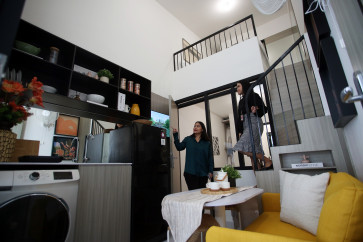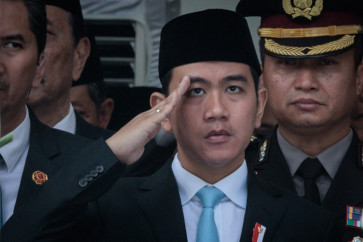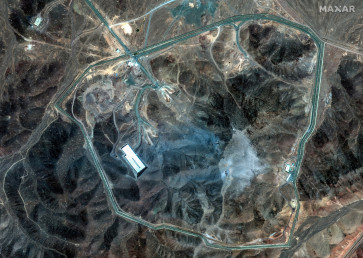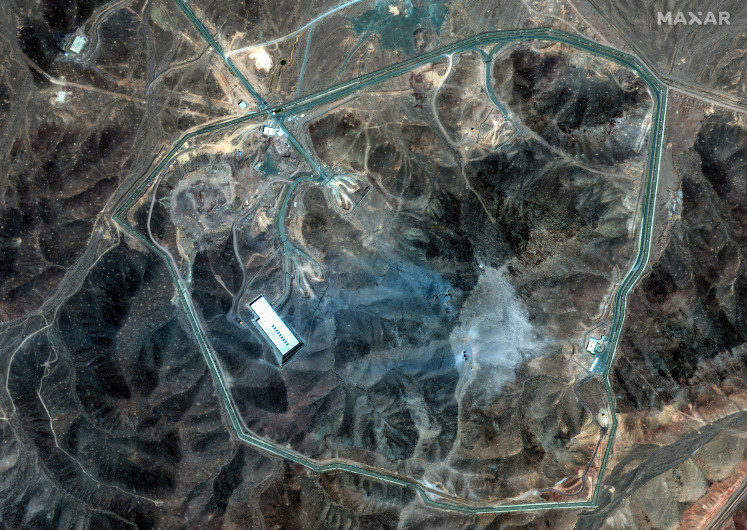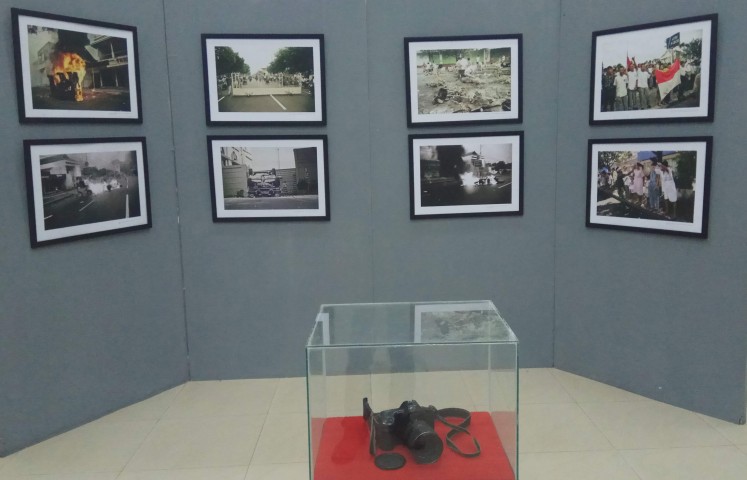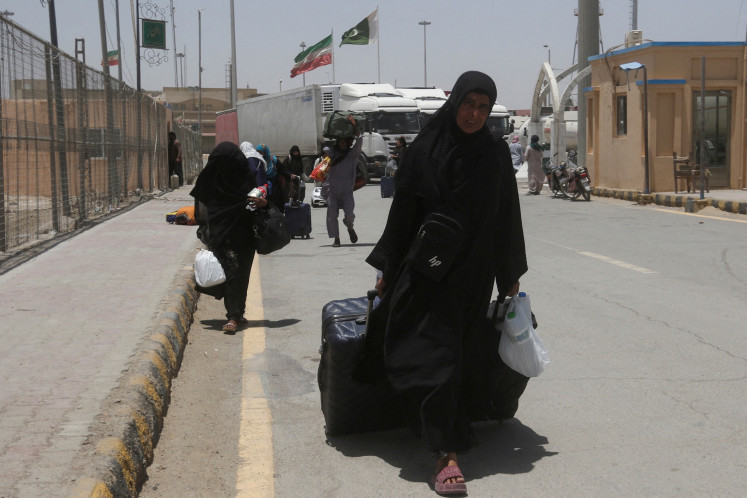Popular Reads
Top Results
Can't find what you're looking for?
View all search resultsPopular Reads
Top Results
Can't find what you're looking for?
View all search resultsKPU, Bawaslu dance with House over election policies
Three months before the official start of the campaign period for the 2019 legislative and presidential elections, the General Elections Commission (KPU) and the Elections Supervisory Agency (Bawaslu) are still at odds with the House of Representatives over regulations regarding campaigning and candidate nominations
Change text size
Gift Premium Articles
to Anyone

T
hree months before the official start of the campaign period for the 2019 legislative and presidential elections, the General Elections Commission (KPU) and the Elections Supervisory Agency (Bawaslu) are still at odds with the House of Representatives over regulations regarding campaigning and candidate
nominations.
According to the 2017 General Elections Law, both the KPU and Bawaslu are obligated to consult with lawmakers and the government in devising regulations. But the consultations have been contentious, with House Commission II overseeing home affairs taking issue with many of the election organizers’ decisions.
The KPU and Bawaslu have stuck to its guns, pointing to a Constitutional Court decision in 2016 that ruled the KPU is free to ignore the House’s conclusions.
During the most recent consultation meeting on Monday, in which Bawaslu’s regulations on general election campaigning was discussed, one senior Commission II member suggested that the meetings be done away with altogether.
“There’s no need for these consultations if [the KPU and Bawaslu] are just going to make their own regulations anyway. Especially as it seems that we have completely different perspectives on many issues,” Golkar Party lawmaker Rambe Kamarul Zaman said before announcing that he would leave the meeting.
The dispute during the meeting was on whether the KPU and Bawaslu had the right to regulate parties’ activities before the official campaign period starts on Sept 23.
In its draft regulations, both the KPU and Bawaslu limit parties to displaying flags with its logos and internal political education meetings.
“Before September, it’s not even counted as campaigning, so why is [the KPU and Bawaslu] getting involved?,” asked Indonesian Democratic Party of Struggle (PDI-P) lawmaker Sirmadji, citing a provision in the 2017 law that states campaigning can only start three days after legislative and presidential candidates are officially verified.
KPU commissioner Pramono Ubaid said while it was true that the law had a limited definition of campaigning, adhering strictly to the letter of the law would open the door to excessive campaign abuses.
“For example, not long ago there was a party that would continually air ads on TV, every single day,” Pramono said, obliquely referring to media mogul Hary Tanoesoedibjo’s Perindo Party’s aggressive promotion on television stations owned by its chairman.
Pramono said without the regulations proposed by the KPU and Bawaslu, the period between parties registering for elections and the official start of campaigning would essentially be a free-for-all.
“So what we are trying to do is strike a balance between allowing parties to carry out political activities and duties while making sure certain parties don’t take advantage of the room allowed in the law,” he said.
Bawaslu chairman Abhan agreed, saying while his agency did not want to overstep the law, it also did not want to leave room for abuse.
Nevertheless, House members continued to express disagreement with the regulations, and House Commission II deputy chairman Nihayatul Wafiroh closed the meeting by urging the KPU and Bawaslu to revise the campaign regulations according to input from lawmakers.
After the meeting, Bawaslu commissioner Fritz Edward Siregar said the agency maintained its opposition to putting up campaign advertisements before the official campaign period.
“However, the KPU will have a meeting tonight and we will see what they have to say,” he said.
Bawaslu has four draft regulations on campaign funds, legislative candidates’ nomination, presidential candidates’ nomination and election equipment that have yet to receive House approval.
“We hope these regulations can be completed by tomorrow, keeping in mind that time is running out,” Fritz said.
As for the KPU, it is now ready to issue a set of regulations to implement fairer yet tougher rules despite that recent deadlocks between election organizers and lawmakers frustrated the plan.
Last month, the KPU insisted it proceed with a regulation prohibiting former graft convicts from running in the 2019 legislative elections, despite vigorous opposition from House Commission II members.

